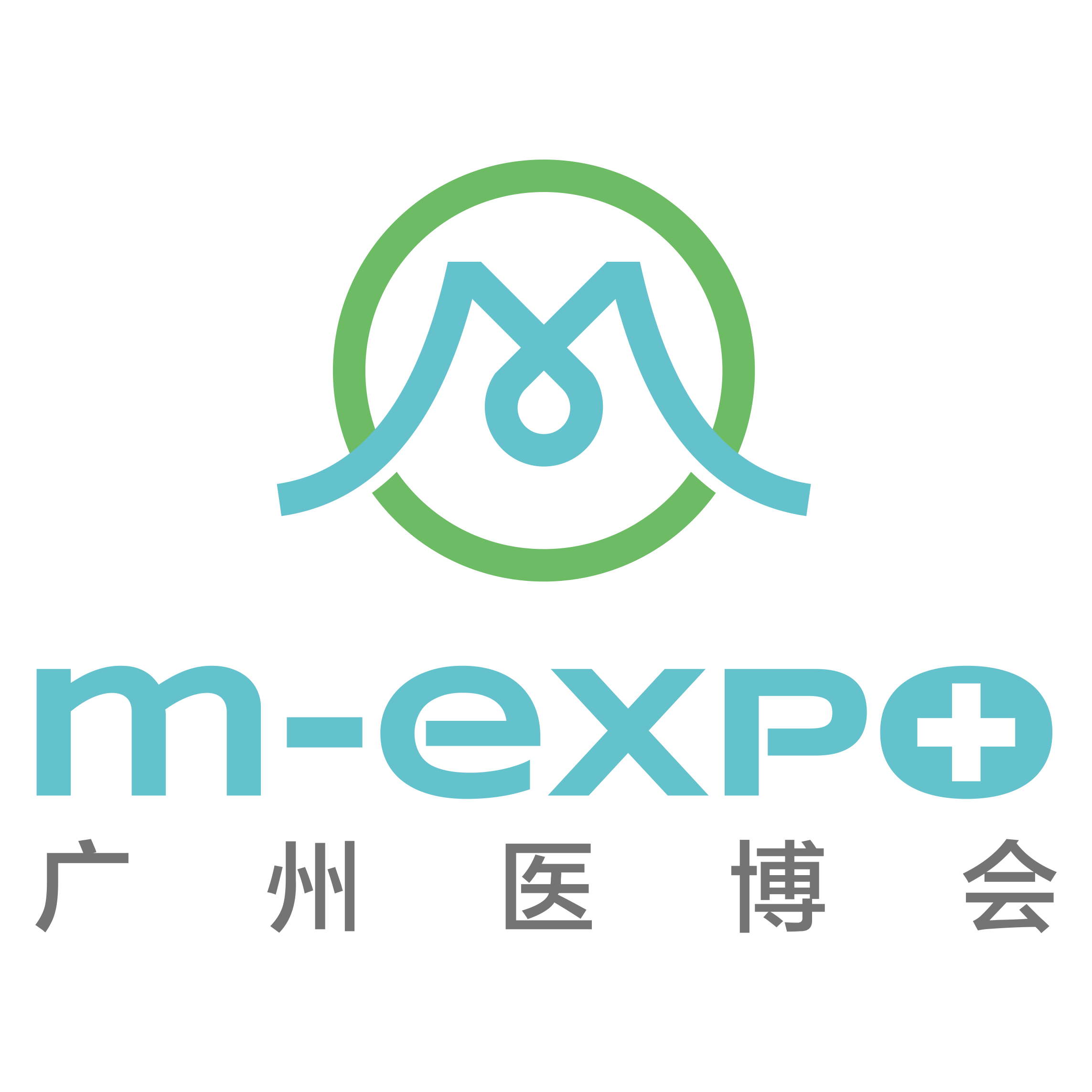Never forget the original intention of benefiting the people and strengthening regional connectivity
The foundation of healthcare informatization is steadily being strengthened. Guangzhou has built a national health information platform, currently connecting 298 medical and health institutions, gathering information on the health of the entire city's population. Based on this platform, Guangzhou has developed multiple applications such as electronic health codes, access to health records, signing contracts with family doctors, and remote medical care. It has also completed the construction of a data standard system and an information security guarantee system, providing a basic data and business collaboration platform for interconnectivity among medical institutions.
Smart and convenient applications continue to enrich. Guangzhou actively promotes the use of electronic health codes to achieve universal access to medical services throughout the city, effectively solving the problem of repeated and non universal medical card applications among the public. Guangzhou has built the "Guangzhou Health Pass" mobile medical service brand, providing residents with more than 30 convenient services such as registered payment, intelligent guidance, health record inquiry, and online consultation, assisting patients in accurate and efficient medical treatment, achieving "health management in the pocket" and "convenient medical treatment in the palm".
Comprehensive promotion of informationized medical systems. 270 medical and health institutions in the city are connected to the mutual recognition platform for inspection and examination results, effectively reducing the number of repeated examinations for patients and lowering the medical burden. The regional diagnostic center system and testing center system have been launched and used throughout the city, allowing the public to enjoy diagnostic and testing services from higher-level hospitals while undergoing grassroots examinations and paying according to grassroots standards. Guangzhou has also launched an intelligent imaging assisted diagnosis system, providing intelligent assistance such as bone age measurement, pulmonary nodule diagnosis, and chest X-ray diagnosis for hospitals at all levels in the city, greatly improving diagnostic and treatment efficiency. The graded diagnosis and treatment system covering the entire city provides functions such as outpatient referral, inpatient referral, and discharge follow-up, reserving a source of expert accounts from higher-level hospitals for family doctors and promoting two-way referral.
Building smart hospitals and upgrading digital health services
Guangzhou city focuses on the requirements of "smart healthcare, smart management, and smart services", highlights key areas, and strengthens supervision. At present, 25 out of 48 smart hospital construction projects in the city have been completed and put into use.
In terms of improving the level of intelligent management, Guangzhou municipal hospitals have upgraded their information systems such as refined operation decision support systems and medical insurance cost control systems, effectively enhancing the visualization and analysis capabilities of hospital management and operation indicators. At the same time, the system also provides operational decision-making assistance based on artificial intelligence, better assisting public hospitals in improving their operational management system.
In terms of building an integrated smart medical service system, Guangzhou Women and Children's Medical Center passed the seven level evaluation and was ranked as one of the four seven level units in China in the 2022 national electronic medical record classification evaluation. Accelerate the landing of major scientific research platforms such as specialized disease databases and microbiological testing systems; Special improvement projects such as rational drug use system and anesthesia surgery management system are being promoted in an orderly manner.
Guangzhou Huadu District, supported by smart healthcare, continuously strengthens information technology construction and vigorously promotes new service models such as one-stop pre hospitalization and discharge services. The district comprehensively promotes bedside settlement, achieving convenient entry and exit for patients, and connecting the last mile of information and convenient services. In the process of deepening the construction of medical groups, Huadu District has opened up barriers between pre hospital and in hospital hospital information systems (HIS), enabling patients to be admitted as soon as they board the ambulance, and improving rescue efficiency. The District People's Hospital utilizes Internet of Things technology to create a mobile pharmacist ward round system, achieving inpatient pharmacy monitoring; By combining 5G technology, we collaborate with pre hospital emergency, emergency rescue rooms, and cardiology departments to achieve collaborative treatment. At present, the hospital has successfully passed the Level 5 evaluation of the electronic medical record system's functional application level, becoming the first district level hospital in Guangdong to be rated as Level 5. The district's integrated traditional Chinese and Western medicine hospital creates an excellent "smart ward", achieving full coverage of 5G network signals within the hospital, and combining IoT technology to carry out logistics robot drug delivery services, achieving full traceability and closed-loop management of drugs, greatly improving medical service efficiency.
Draw a blueprint for digital health around "point chain surface"
In 2022 and 2023, Guangzhou ranked among the top three in the National Health Informatization Development Index. The achievement is attributed to Guangzhou's adherence to the "point chain surface" health information technology development strategy.
One is to build a good information platform as the "support point". The Guangzhou National Health Information Platform has broken down the data barriers between medical insurance, human resources and social security, civil affairs and other departments, as well as between various departments and third-party platforms, achieving information sharing and interaction, laying a solid foundation for cross regional data exchange and business collaboration. At present, the platform has gathered population information, electronic health records, and electronic medical records from three major databases in the city, connecting 298 medical and health institutions (including all provincial and ministerial hospitals) through one network, and collecting approximately 55.58 million health records.
The second is to facilitate the critical chain of mutual recognition between medical examinations. Carrying out mutual recognition of medical laboratory examination results not only requires policy promotion, but also institutional guarantees and support from information technology. Guangzhou is the first city in the country to apply blockchain technology, store hospital inspection results and other information on the chain and trace the entire process, building a safe and reliable city wide mutual recognition platform for inspection results. Guangzhou has also established corresponding incentive mechanisms to incentivize public hospitals based on the growth rate of mutual recognition of medical examination results. The mutual recognition rate of inspection results in provincial and ministerial hospitals has significantly increased. The city's retrieval rate and post retrieval mutual recognition rate both exceeded 96%, saving over 300 million yuan in expenses in 2023, exceeding the goal of doubling compared to 2022.
The third is to broaden the application scope of cutting-edge technologies. The development and application level of technologies such as artificial intelligence and big data indicate the depth and breadth of the development of health informationization. Focusing on information technology and big data applications, Guangzhou has developed the country's first medical logistics robot, which can save 2-3 manpower for hospitals and promote cost reduction and efficiency improvement. Relevant cases have been selected as excellent application scenarios for robots in the national medical field; Developing an artificial intelligence assisted system for traditional Chinese medicine diagnosis and treatment, effectively enhancing the ability of grassroots traditional Chinese medicine diagnosis and treatment services; Develop a mini program for daily care services for infants and young children, build a visual childcare management platform, and enable real-time interaction between parents and childcare centers.
相关推荐
- 2026 Guangzhou Medical Expo Scheduled for August! Building the Core Engine for the Greater Bay Area's Healthcare Industry. 2025-11-07
- Full-chain Empowers Industrial Innovation! The 2025 Guangzhou Medical Expo Successfully Concludes Today 2025-08-24
- Grand Opening of 2025 Guangzhou Medical and Health Industry Expo: Jointly Paint a New Blueprint for Health and Play the March of Industrial Endeavor 2025-08-22
- Over 400 hospitals and enterprises gather in the City of Rams! Guangzhou Medical Expo has become a highland for the first launches of innovative pharmaceuticals and medical devices. 2025-06-13

